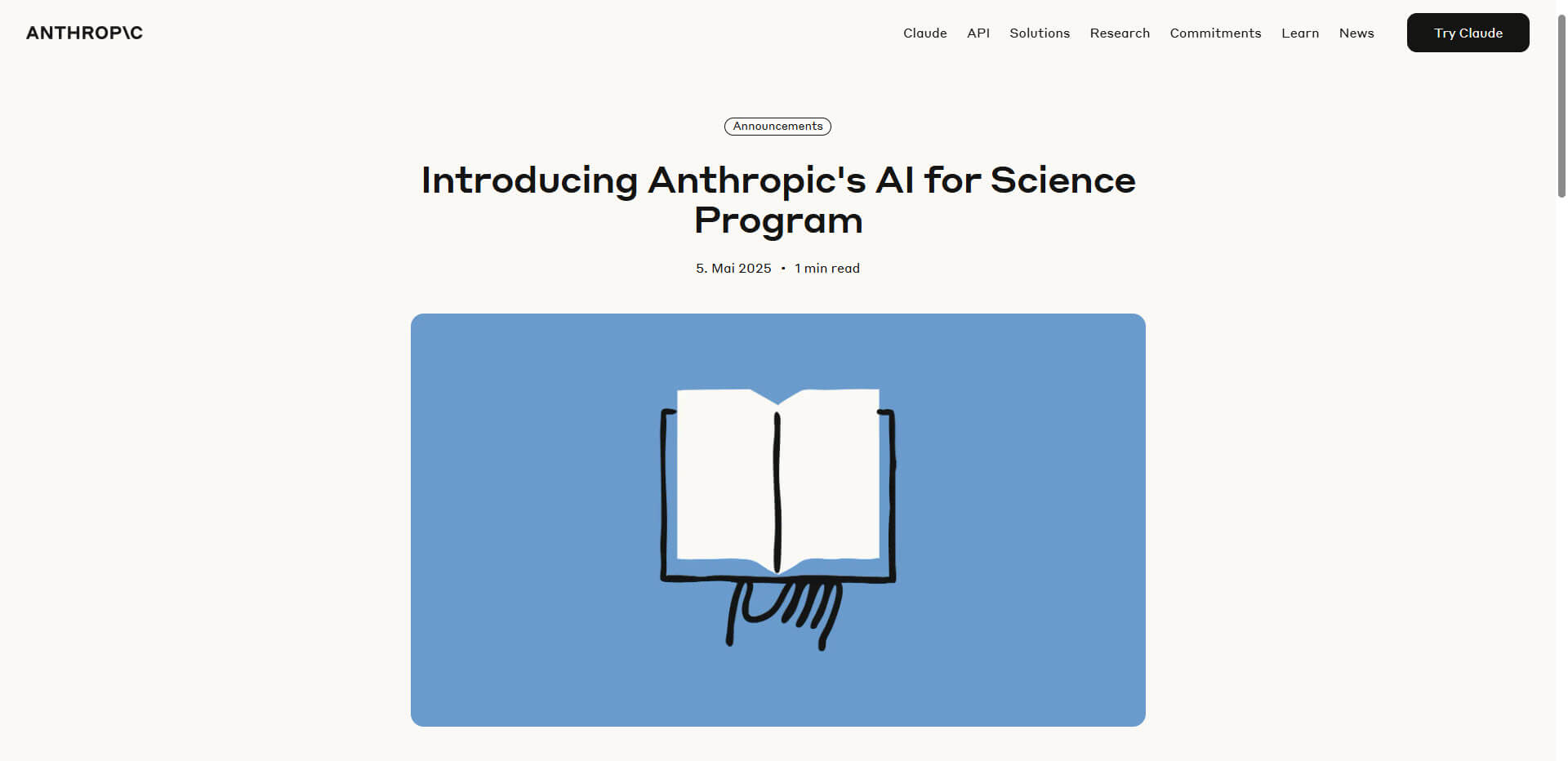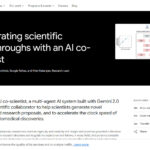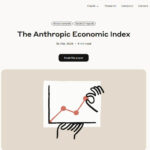Scientists receive up to $20,000 in API credits for AI-powered research projects in biology and life sciences. Anthropic’s recently launched program aims to give researchers access to powerful Claude AI models to accelerate scientific breakthroughs in areas such as drug development and agriculture.
The initiative is primarily aimed at researchers in biology and life sciences who want to use AI support for complex data analysis, hypothesis generation and experiment design. Selected participants will receive access to the advanced Claude models for a period of six months. Anthropics CEO Dario Amodei emphasizes that the AI will not only serve as a data analysis tool, but as a virtual collaborator that can support the entire research process.
Applications are evaluated by experts on a monthly basis, with preference given to projects with high societal benefits and clear AI integration strategies. For security reasons, the program excludes applicants from sanctioned countries such as Russia, China, Iran and North Korea.
AI as a research partner: potential and challenges
The program comes at a time when the role of AI in science is increasingly being discussed. A McKinsey study predicts that AI could increase R&D productivity by 10-15%, particularly in the life sciences. Despite these optimistic forecasts, skepticism remains: Critics doubt that current AI models offer the necessary creativity and contextual depth for truly transformative discoveries.
Anthropic’s approach differs from fully automated systems such as Sakana AI’s “AI Scientist”, which generates research independently. Instead, Anthropic relies on human-AI collaboration, where researchers remain in control and AI acts as a powerful assistant. This strategy could help minimize the risks of AI hallucinations that occurred in previous AI science projects such as Google’s GNoME, which initially claimed to have discovered 40 new materials, which later turned out not to be validatable.
Future prospects for AI in science
The integration of Anthropic’s API with other AI research tools such as the academic search engine Consensus could enable a seamless workflow: Researchers use Claude for experiment design, Consensus for literature validation, and automated lab systems to run protocols. This ecosystem-based approach reflects the trend towards “AI-enhanced science”.
To address geographic disparities, future phases of the program could offer partnerships with NGOs or discounted credits for low-income countries. The integration of open-source AI models could also broaden participation while maintaining biosafety standards.
Anthropic’s program represents a pragmatic step towards human-AI collaboration in research. By providing substantial resources while acknowledging current technological limitations, the initiative could catalyze incremental advances in drug development, climate research and public health. However, long-term success depends on addressing systemic barriers and fostering a collaborative ecosystem in which AI complements, not replaces, human ingenuity.
Executive Summary
- Anthropic provides researchers with up to $20,000 in API credits for scientific projects
- The focus is on biology and life sciences, particularly drug development and agriculture
- The program encourages human-AI collaboration rather than fully automated research
- Applications are evaluated on a monthly basis, taking biosafety aspects into account
- The initiative competes with other AI science programs such as Google’s GNoME
- McKinsey studies predict a 10-15% increase in R&D productivity through AI integration
Source: Anthropic







